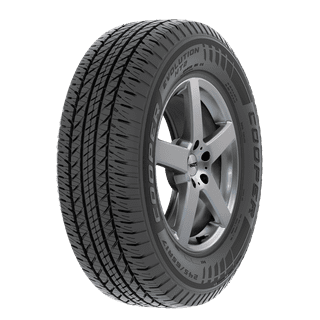Tire Service: Comprehending Tire Pressure Monitoring Systems
Understanding Tire Pressure Tracking Equipments (TPMS) is an important aspect of keeping optimum car efficiency and safety and security on the roadway. With advancements in automobile innovation, TPMS has become a conventional feature in modern-day lorries, giving real-time information on tire pressure levels. Diving deeper right into the intricacies of TPMS, one can reveal the various components that comprise this system and the relevance of each in guaranteeing exact surveillance. From straight to indirect TPMS systems, the landscape of tire pressure surveillance is diverse, each with its distinct set of considerations and benefits. Remain tuned to unwind the intricacies of TPMS, from maintenance suggestions to the indisputable advantages of maintaining your tires effectively blew up. tire shop morris.

Relevance of TPMS
The value of Tire Stress Monitoring Equipments (TPMS) hinges on their ability to improve automobile safety and security and performance through real-time surveillance of tire stress levels. Maintaining the proper tire pressure is vital for making certain ideal handling, stopping, and total safety of a lorry. TPMS offers drivers with prompt responses on any overinflated or underinflated tires, enabling for prompt adjustments to be made.
Elements of TPMS
Sensing units are normally located in the tire shutoff stem or affixed to the wheel assembly, where they measure tire pressure and send information to the control module. Some progressed TPMS versions likewise show the real tire stress readings for each tire, supplying vehicle drivers with real-time info to make sure optimal tire performance and safety. By checking tire pressure constantly, TPMS aids avoid crashes, lowers tire wear, and boosts fuel effectiveness, making it a crucial part for automobile safety and security and efficiency. tire shop morris.
Sorts Of TPMS

On the other hand, indirect TPMS depends on the automobile's wheel speed sensors to check tire pressure. This system spots underinflation by comparing the rotational rates of the wheels. Indirect TPMS is much less costly than direct TPMS, as it utilizes existing sensors within the car.
While straight TPMS provides extra precise readings, indirect TPMS is simpler in design and commonly requires less maintenance. Both systems have their advantages and limitations, and the selection between them frequently depends on elements such as cost, vehicle make, and personal choice. Comprehending the differences between these 2 kinds of TPMS can assist vehicle proprietors make notified choices regarding tire upkeep and safety and security.
TPMS Upkeep Tips
Reliable upkeep of helpful resources TPMS is essential for making certain optimal performance and security of your lorry. On a regular basis inspecting the TPMS sensing units for any type of damage or deterioration is vital. Guarantee that the sensors are complimentary and tidy from debris that might hinder their performance. In addition, it is recommended to check the sensing unit batteries regularly and replace them as needed to assure exact analyses. Conduct routine look at the tire stress levels and contrast them with the TPMS analyses to guarantee they are constant. Rectify the system complying with the manufacturer's guidelines if there are any type of disparities. During tire rotation or substitute, make sure that the TPMS elements are managed carefully to protect against any kind of possible damages. If the TPMS alerting light illuminates on the control panel, resolve the problem quickly by examining the tire pressures and the general system for any type of mistakes. By adhering to these upkeep pointers, you can prolong the life expectancy of your TPMS and improve the safety of your driving experience.
Benefits of Appropriate Tire Stress
Maintaining proper tire stress, as stressed in TPMS Maintenance Tips, is essential for enjoying the various advantages connected with optimal tire stress levels. Among the key benefits of preserving the proper tire pressure is enhanced gas effectiveness. When tires are effectively inflated, there is much less moving resistance, leading to much better gas economic situation. Additionally, proper tire pressure guarantees also tire wear, prolonging the right here lifespan of the tires and promoting more secure driving conditions. With the appropriate tire pressure, lorries additionally have far better handling and grip, especially in adverse weather. This can enhance overall driving performance and safety for the motorist and guests. Furthermore, keeping optimal tire pressure can contribute to a smoother and a lot more comfortable trip by minimizing resonances and sound created by underinflated tires. In conclusion, the advantages of correct tire stress go beyond simply tire durability; they incorporate boosted gas performance, improved safety, better car efficiency, and general driving comfort.
Conclusion
In verdict, understanding tire pressure surveillance systems (TPMS) is vital for keeping optimum tire stress and making certain lorry safety and security. By recognizing the value of TPMS, recognizing with its components, Continue knowing the different types offered, adhering to proper maintenance pointers, and recognizing the advantages of preserving appropriate tire stress, drivers can improve their driving experience and lengthen the life-span of their tires. Appropriate tire stress is essential to secure and reliable lorry operation.
